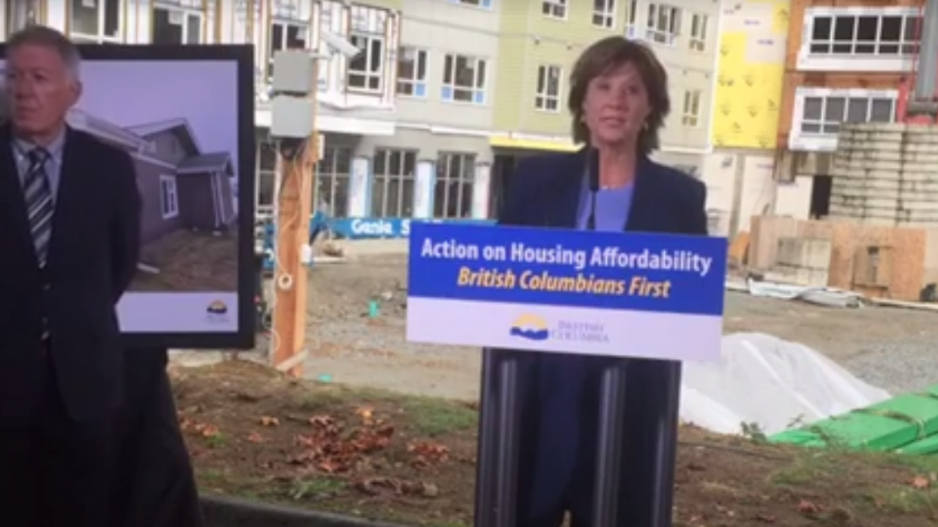The B.C. government has committed $500 million in new money to help address demand for affordable housing and create 2,900 rental units in partnership with various groups.
The money is in addition to $355 million that was earmarked in February to be part of a new Housing Priority Initiatives Fund.
“This is by far the biggest amount that any government has invested, in B.C.’s history, in affordable housing,” Premier Christy Clark said at a September 19 press conference in Burnaby.
The government’s plan is to partner with non-profit societies, local governments, government agencies, community organizations and the private sector.
Housing Minister Rich Coleman added that the government will be “very aggressive and have these projects approved by no later than March 2017.”
Other recent initiatives that the B.C. government has enacted to try to create more affordable housing includes enacting an additional 15% property transfer tax on home purchases in Metro Vancouver by foreign residents and introducing a new luxury tax on properties that sell for more than $2 million.
The news on affordable housing came the same day that the province announced that it has appointed Michael Noseworthy as its new superintendent of real estate. Previously announced changes to the Real Estate Services Act aim to increase oversight of the real estate industry. The future framework gives the new position of superintendent the power to make rules governing the real estate industry.
Clark added that the biggest change to how the sector is governed was to end the situation where governance of the Real Estate Council of British Columbia was “dominated” by realtors.
Currently, 14 of the RECBC’s 17 members are from within the real estate or property management industries. In future most members will come from outside the industry.
Clark also addressed concerns about money laundering.
She said that her government is “considering” asking for information on forms filed at the land title office that would ask for a home buyer’s principle residency. Sharing that information with the federal government could theoretically help Canada Revenue Agency investigators determine situations where tax filers are claiming homes as principle residences when the person does not live in them.
“We may [do that],” Clark said. “We have begun this work. We began it six months ago, maybe four months, with the federal government. They’re responsible for policing money laundering and that range of issues. It’s exclusively a federal job. We want them to do a better job.”
She said that Victoria would share any information that it is legally able to share with Ottawa if those actions would help limit money laundering and the federal government would actually use the information.
“It needs to be information that they are prepared to use,” she said.




